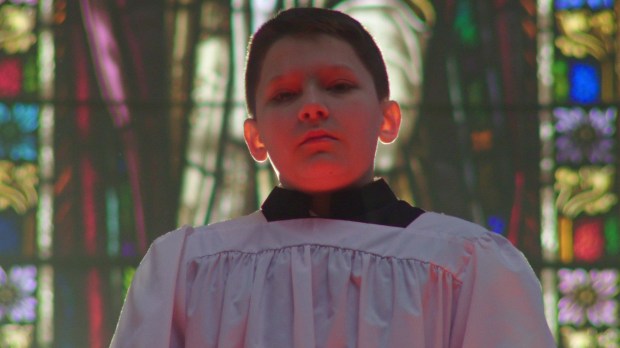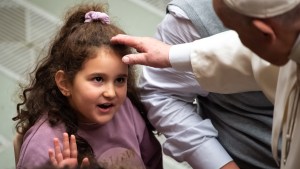“I want this to be like Marvel superheroes,” says a visibly shaken Ed Gavagan, “vanquishing the forces of (vulgarity) darkness.” Those dark forces Mr. Gavaganis is speaking so vehemently against would be the Catholic Church and the various law enforcement officials whom he claims covered up or ignored his childhood sexual abuse at the hands of a Catholic bishop. The means by which he hopes to vanquish these villains is the new documentary Procession, an experimental project from filmmaker Robert Greene now streaming on Netflix.
Gavagan’s desires to bring the entire Church down are perhaps the most extreme on display. The other five men featured in the documentary, all of whom share similar stories of clerical abuse, express more modest goals. While displaying little love for a Church they feel betrayed them, their main reason for participating in Procession does not appear to be revenge, but rather the hope that by doing so it will bring, if not closure, at least some form of catharsis to their ongoing trauma.
The method used to accomplish this goal is unique. Together with director Greene and a licensed therapist, each of the six men has scripted and acted in a staged vignette related to his childhood abuse. The resulting short films range from reenactments of moments leading up to abusive situations to wish fulfillment fantasies where the perpetrators of the abuse are confronted in ways they never were in real life. Strangely enough, in many of the scenarios the film presents, the former victims actually don priestly vestments and act out the roles of their abusers while a child actor stands in for them.
As offbeat as this approach sounds, it is a recognized form of therapy dating back to at least the 1940s. A 2020 article in Psychology Today notes that drama therapy, as the roleplaying technique is commonly referred to, can “be particularly effective for clients who ‘feel stuck’ within their lives or traditional psychotherapy. It offers a way to access subconscious information that can be difficult to engage with otherwise.” And if anything, the six men spotlighted in Procession are stuck. Years of therapy have brought little relief, and they see the opportunity offered by the documentary as maybe their last chance at making some peace with the horrors of their alleged abuse.
Unfortunately, the use of the word “alleged” is a sad necessity. In Procession’s one potential misstep, none of the priests it names as abusers has ever been officially charged with a criminal act. This is no way means the incidents depicted in the film never happened. Most of us are aware there have been many credible accusations of clerical abuse that could not be prosecuted due to the statute of limitations or the lack of verifiable evidence from decades past. Still, that not one of the priests the documentary insists are guilty has ever actually been found so by any authority may sit uneasily with some viewers. The filmmakers and their subjects do not shy away from this problem, though. In fact, they insist the lack of prosecution of the accused priests and the potential for skepticism this brings to their stories is a large part of the reason the six men are still burdened with anguish and anger after all these decades.
So, does participating in Procession ultimately provide the six men with what they are looking for? Based on their reactions by the end of the film, the answer seems to be a resounding … maybe. There is some catharsis to be sure. The satisfaction one of the men expresses after taking a sledgehammer to a replica of the hotel room in which he was molested is more than apparent. But as to the lasting effects the role-playing exercises will have on their emotional and spiritual well-being, only time will tell.
From a Christian standpoint, perhaps one of the reasons the experiment doesn’t appear to yield full results is that it lacks God, the source of all healing, as part of the solution. This is absolutely not a condemnation of the victims. After all, if your sexual abusers were priests, some of whom infuriatingly are depicted in the film as using the sacrament of confession as an opportunity to groom young boys, it’s quite understandable that a church is one of the last places on Earth you’d want to spend time in. No, this lack of faith as a component of these men’s efforts at healing lies solely at the feet of those who committed the abuse and those who covered it up.
For faithful Catholics, this is one of the more sobering takeaways from Procession, that not only were the victims of clerical abuse robbed of innocence as children, but they may have also been robbed of a chance at full healing as adults because of who their abusers were. This is why the Church must continue to increase its efforts to purge itself of those who commit such acts, so that future generations will see it not as a dark force to be vanquished, but as the temple of healing God intended it to be.



